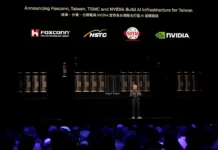Intel is reportedly still struggling with a chip manufacturing process that is critical to its future. Reuters reports that the company’s 18A process still produces poor performance and high defect rates. Intel has invested billions of dollars in the manufacturing process, which it hopes will help it beat TSMC.
This isn’t the first 18A-related news. Last year, a report suggested that Broadcom was unhappy with the results of a test run for a potential order. At the time, however, Intel insisted that 18A was on track to produce its upcoming Panther Lake chips in full volume later this year. “Our performance and yield trajectory gives us confidence that this will be a successful launch that will further strengthen Intel’s position in the notebook market,” Intel said last month.
Intel typically aims to achieve a yield of at least 50 percent of usable chips before scaling up production. The company is said to make most of its profits after reaching 70-80 percent. Last year, Panther Lake 18A chips that were usable reportedly only reached the 5 percent threshold. This summer, Intel had planned to hit 10 percent. Tuesday’s report did not specify the current yield of 18A, only describing it as a small percentage.
In a statement sent to Engadget, an Intel spokesperson said the company was pleased with the current state of 18A. “We are very pleased with our trajectory with Intel 18A, and it will be the foundation for multiple generations of client and server products in the coming years,” the spokesperson wrote. “Panther Lake will be a great product for Intel and our partners,” the company continued, adding that its launch is still planned for later this year.
In an interview with Reuters in July, Intel CFO David Zinsner suggested that 18A performance was better than previously reported. He added that profitability tends to “start low and build over time.”
The company’s 18A process is a risky bet that combines manufacturing changes with next-generation transistor designs. Intel has taken on the challenge with an aggressive schedule that one Reuters source called an “Ave Maria.” Successful execution of 18A will also help attract business for its upcoming 14A process. Intel warned investors last month that it may have to exit chip production altogether if it doesn’t win contracts for its 14A process.
The company needs all the help it can get. It recently confirmed that it will cut about 20 percent of its workforce by the end of this year. This follows 20,000 job cuts from June 2024 to July 2025. A new CEO was appointed earlier this year, attempting to right the ship.









